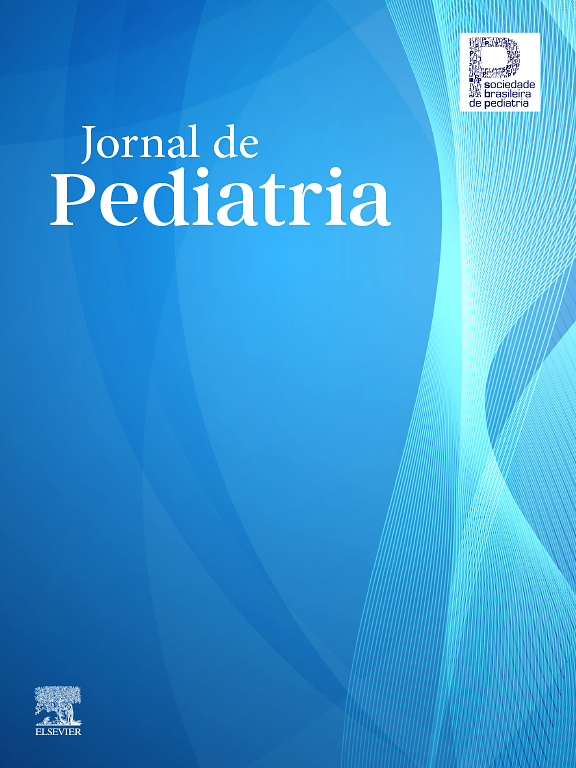To review the literature on diseases linked with infection by human T-cell lymphotropic virus type I (HTLV-I) in childhood and adolescence, with focus on clinical aspects, diagnosis, pathogenesis, progression and treatment.
SourcesMedical literature published during the last 20 years identified using PubMed and MEDLINE and from specialized medical books, with emphasis on infective dermatitis associated with HTLV-I (IDH), on the juvenile form of HTLV-associated myelopathy/tropical spastic paraparesis (HAM/TSP), on adult T-cell leukemia/lymphoma (ATL) and on HTLV-I-associated uveitis. Keywords used to search databases were: HTLV-I-associated infective dermatitis, HTLV-I-associated myelopathy/tropical spastic paraparesis, adult T-cell leukemia/lymphoma, HTLV-I-associated uveitis.
Summary of the findingsIDH is a chronic, relapsing and infected dermatitis of childhood which always involves the scalp and which may progress to HAM/TSP and ATL. HAM/TSP is a chronic and incapacitating myelopathy of adults. There are 17 well-documented cases of HAM/TSP in children and adolescents in the literature, 12 of whom are patients with IDH. In contrast with the adult form of the disease, the juvenile form is rapid and progressive. ATL is a type of T-cell leukemia/lymphoma that affects adults and is generally fatal. Eleven of the 24 published reports of ATL in children and adolescents were diagnosed in Brazil.
ConclusionsThese diseases are likely to be more common in childhood and adolescence than the literature would suggest. It is advisable that serological testing be performed for HTLV-I in children and adolescents suffering from chronic and relapsing eczema, with signs and symptoms of myelopathy or with a diagnosis of T-cell leukemia/lymphoma. It is important that pediatricians know how to recognize the pediatric manifestations of this infection in order to correctly diagnose them and offer their patients appropriate guidance and treatment.
Revisão da literatura sobre doenças relacionadas à infecção pelo vírus linfotrópico de células T humanas (HTLV-I) na infância e adolescência, focalizando clínica, diagnóstico, patogênese, evolução e tratamento.
Fontes dos dadosLiteratura médica dos últimos 20 anos utilizando PubMed e MEDLINE e livros médicos especializados, com ênfase na dermatite infecciosa associada ao HTLV-I (DIH), na forma infanto-juvenil da mielopatia associada ao HTLV/paraparesia espástica tropical (HAM/TSP), na leucemia/linfoma de células T do adulto (ATL) e na uveíte associada ao HTLV-I. Palavras-chave usadas na pesquisa: dermatite infecciosa associada ao HTLV-I, mielopatia associada ao HTLV/paraparesia espástica tropical, leucemia/linfoma de células T do adulto, uveíte associada ao HTLV-I.
Síntese dos achadosA DIH é uma dermatite crônica, recidivante e infectada da infância que sempre envolve o couro cabeludo e que pode evoluir para HAM/TSP e ATL. A HAM/TSP é uma mielopatia crônica e incapacitante do adulto. Há 17 casos infanto-juvenis de HAM/TSP bem documentados na literatura, 12 dos quais em pacientes com DIH. Ao contrário da doença no adulto, essa forma é rapidamente progressiva. A ATL é uma leucemia/linfoma T do adulto, geralmente fatal. De 24 casos infanto-juvenis de ATL da literatura, 11 foram diagnosticados no Brasil.
ConclusõesEssas doenças devem ser mais freqüentes na infância e adolescência do que indica a literatura. É aconselhável fazer sorologia para o HTLV-I em crianças e adolescentes com eczema crônico e recidivante, com sintomas e sinais de mielopatia ou com diagnóstico de leucemia/linfoma de células T. É importante que os pediatras saibam reconhecer as manifestações pediátricas dessa infecção para diagnosticá-las corretamente, propiciando aos pacientes orientação e tratamento adequados.









